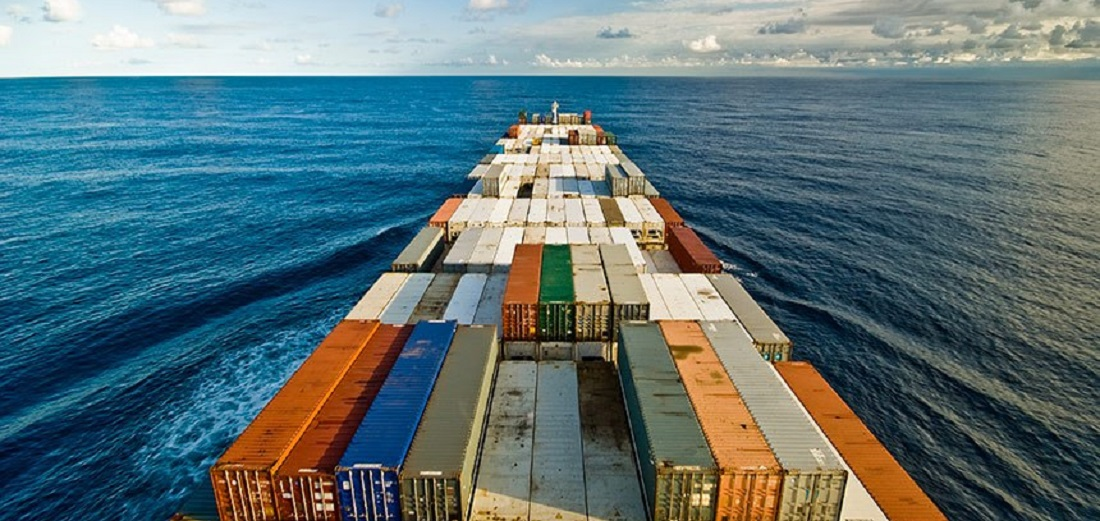
Shipping reacts to Trump election win
Nov, 06, 2024China’s yuan weakened and stock markets on the mainland and Hong Kong fell today on news that Donald Trump will become the 47th president of the United States, likely ushering in another period of trade wars between the world’s two largest economies.
With the scale of the victory looking historic, the shipping industry will have to brace for some extraordinary changes in the coming years, not just in trade flows, and geopolitics, but also in the pace of global green regulations.
“This will forever be remembered as the day the American people regained control of their country,” Trump said at a victory rally in Florida today.
“The big issue for shipping is the economic realignment between the Pacific and Atlantic economies, which has been under way for the last 15 years. Trump’s tariff wall might be a stage in that, but like walls to keep out migrants, it is difficult to achieve much in four years,” commented Martin Stopford, the world’s most famous maritime economist.
Khalid Hashim, managing director of Thai-listed dry bulk owner Precious Shipping, predicted Trump’s win would lead to a swift end to the war in Ukraine, a lifting of sanctions against Russia, and more tariffs against China.
“Oil prices will fall, they could be sharp falls, it depends on how quickly sanctions against Russia are lifted,” Hashim told Splash, adding that shipping should not be too concerned about the tariffs rhetoric.
“In the eight years since the US started the tariff game at the start of Trump’s first term, actual imports into the US of container traffic has gone up dramatically. Look at the numbers being declared by Los Angeles and Long Beach, the two largest container terminals in the US in the last eight years, so there’s nothing to fear from tariffs,” Hashim said.
Roar Adland, global head of research at broker SSY, maintained that tariffs could be bad news for shipping.
“We expect Trump to do as he says and put higher trade tariffs in place, particularly on China,” Adland told Splash, adding: “To the extent that other countries retaliate, international seaborne trade would suffer, which is bad for shipping.”
A quicker resolution to the Ukraine conflict could, on the other hand, boost cement and steel trade for rebuilding the country, Adland said.
Punit Oza, a well-known commentator on shipping and geopolitics, said he felt Trump’s return to the White House was bad news for Europe, but potentially positive for Asia and even China.
“With clear Trump policies of greater fossil fuel production in the US, engaging – in a good or bad way – all the trade partners to renegotiate trade deals, the trade flows will be dynamic and volatile. Coal and oil exports from the US to Asia will pick up for sure,” said Oza, who runs Singapore-based consultancy Maritime NXT
“Once again, shipping is in for a volatile time but it may not be all bad news,” Oza said. “If Asia and the US work out a deal, that may well mean longer ton-miles and two-way traffic, which is pretty bullish.”
“As shipping is a global industry, feeding on international trade, the president-elect is a step in the opposite direction. This risk everyone has to act on,” warned Peter Sand, chief analyst at Xeneta, a container freight platform.
Lars Jensen, who runs container consultancy Vespucci Maritime, said the Trump win would likely result in a short-term boost for US imports.
“Longer term we might well see an escalation of trade wars which might change the routing and sourcing patterns just as we have seen with Chinese goods being rerouted via Mexico,” Jensen said.
In the first Trump trade war, the Chinese targeted US farmers and reduced imports of US grain. China is able to substitute this with more imports from Brazil, with minimal net tonne-mile impact.
According to data from Clarksons Platou Securities, dry bulk, particularly grain and steel products, was the most impacted from the first Trump trade war with China, followed by LNG and LPG.
Overall shipping tonne-mile growth fell 0.5% in 2018, then again by 0.5% in 2019, according to Clarksons data
One area that could face headwinds from the historic Trump win is in shipping’s decarbonisation path.
“If we do get a second Trump term, the work currently ongoing at the International Maritime Organization (IMO) to get new regulations and set targets globally might hit a dead end,” warned analysts from Sea-Intelligence on Sunday. “This, in turn, would accelerate a trend, where regulation regarding decarbonisation of shipping, would have to be made locally, and not globally.”
Anais Rios, shipping policy officer at Seas At Risk, argued: “The IMO process does not hinge on who sits in the White House. Africa, Latin America, Asia, along with Europe and North America can – and indeed must – agree next year on an ambitious carbon levy and a strong fuel standard, in order to deliver on their historic promise: decarbonise shipping in an equitable way by 2050. With a clear majority of governments already onboard, both inside and outside the IMO, the course is set.”
Summing up the prospects for shipping under a potential second Trump administration next January, analysts at broker Hartland Shipping wrote: “The most confident conclusion we can make is that the volatility and uncertainty in today’s shipping markets is only going to increase under Trump 2.0.”
Source: Splash 247
-
Ports and Terminals
May, 25, 2022
0
Portos do Paraná opens public consultation for soon-to-be-leased areas
-
Meat
May, 26, 2022
0
The revenue from chicken meat exports in the first 15 working days of May reached 99% of the total revenue in May 2021
-
Economy
Aug, 12, 2021
0
Led by Brazil, Portuguese-speaking countries expand trade with China by 40.8% in the first half
-
Ports and Terminals
Mar, 24, 2021
0
Santos cargo handling continues growth trend in February



